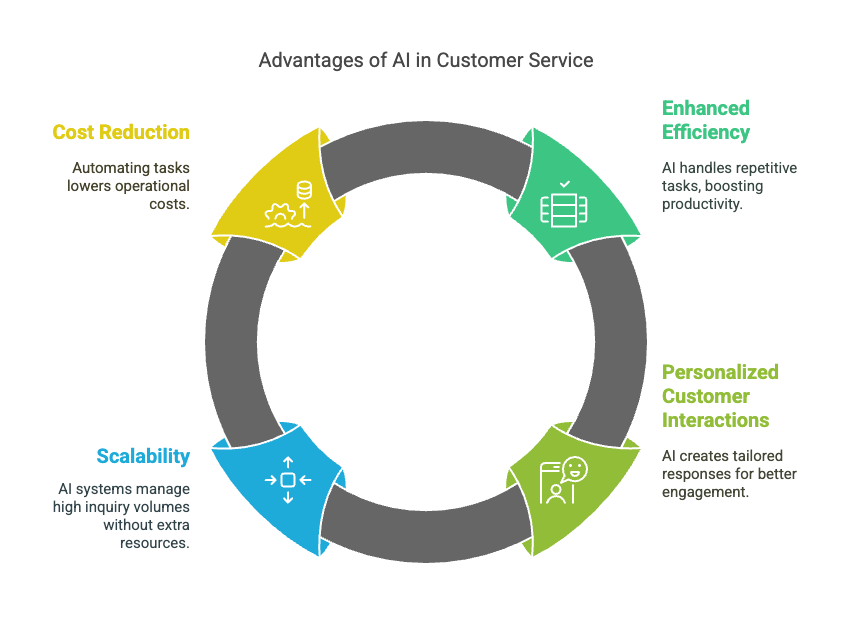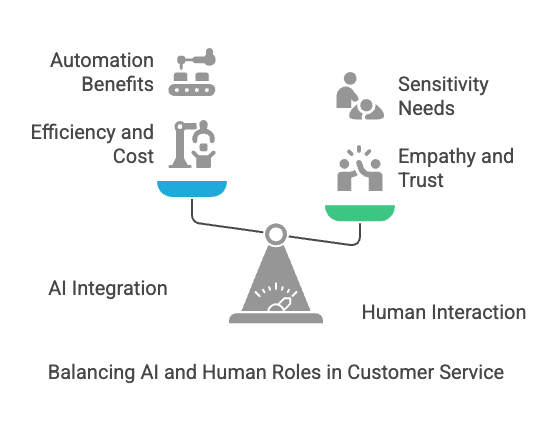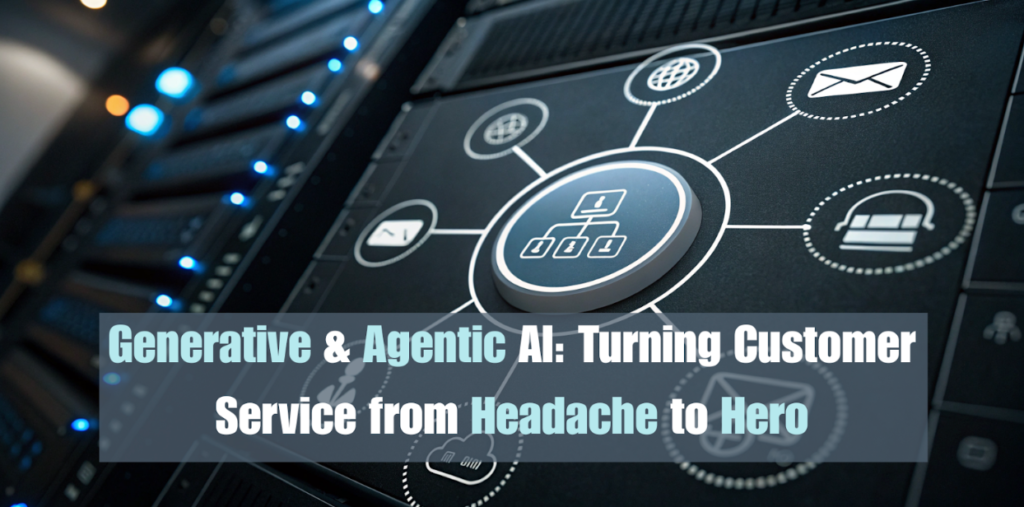In the ever-evolving landscape of customer service, two technological marvels. Generative AI and Agentic AI. Are not just buzzwords but pivotal forces reshaping how businesses interact with their clientele. These innovations are transitioning customer service from a traditional support role to a strategic powerhouse driving business growth.
Understanding Generative and Agentic AI
Generative AI refers to systems capable of creating content. Be it text, images, or even code by learning from vast datasets. This technology enables the production of human-like responses and personalized content, enhancing customer interactions. For instance, Amazon’s CEO, Andy Jassy, highlighted in his 2025 shareholder letter that generative AI is set to reinvent customer experiences across various sectors, emphasizing its transformative potential.
Agentic AI, on the other hand, encompasses AI systems that can autonomously perform tasks, make decisions, and adapt to new information without human intervention. These AI agents can handle complex workflows, from managing customer inquiries to executing transactions, thereby streamlining operations and reducing the need for manual oversight.Companies like Salesforce are at the forefront of this innovation, developing platforms that empower businesses to deploy AI agents capable of autonomously handling various business functions.
Real-World Impact: Case Studies
The practical applications of these AI technologies are already evident:
- Delta Air Lines: By implementing Alembic’s AI-driven marketing intelligence platform, Delta attributed over $30 million in cash sales to its Olympic sponsorship, showcasing the tangible impact of AI on marketing and sales strategies.
- Verizon: The telecommunications giant reported a significant sales boost after deploying a Google AI assistant to aid its customer service representatives. This AI tool streamlined responses, reduced call times, and allowed human agents to focus more on sales, resulting in a nearly 40% increase in sales.
Benefits of Integrating AI into Customer Service
The fusion of Generative and Agentic AI into customer service frameworks offers several advantages:
- Enhanced Efficiency: AI agents can manage up to 90% of repetitive tasks, freeing human agents to tackle more complex issues and improving overall productivity.
- Personalised Customer Interactions: Generative AI enables the creation of tailored responses based on individual customer data, leading to more engaging and satisfactory experiences.
- Scalability: AI systems can handle a large volume of inquiries simultaneously, allowing businesses to expand their customer service capabilities without a proportional increase in resources.
- Cost Reduction: Automating routine tasks reduces operational costs, allowing businesses to allocate resources more effectively.

Challenges and Considerations
While the benefits are compelling, integrating AI into customer service is not without challenges:
- Data Privacy and Security: Ensuring customer data is handled responsibly is paramount to maintain trust and comply with regulations.
- Maintaining Human Touch: While AI can handle many tasks, complex or sensitive issues may still require human empathy and understanding. Striking the right balance between automation and human interaction is crucial.
- Implementation Costs: Initial investments in AI technology and training can be substantial, and businesses must weigh these costs against the anticipated benefits.

Looking Ahead: The Future of AI in Customer Service
The trajectory of AI in customer service points towards even more sophisticated applications. According to Zendesk, AI is making customer service more human by providing personalized and efficient interactions, indicating a shift towards more intuitive and responsive AI systems.
Moreover, as AI technology becomes more accessible and cost-effective, even small and medium-sized enterprises can leverage these tools to enhance their customer service operations, democratizing the benefits of AI across the business spectrum.
Conclusion
The integration of Generative and Agentic AI into customer service is not just a fleeting trend but a fundamental shift towards more efficient, personalized, and scalable customer interactions. As businesses navigate this transformation, embracing these AI technologies can lead to enhanced customer satisfaction, streamlined operations, and a competitive edge in the market.
For businesses looking to stay ahead of the curve, the message is clear: adapt and integrate AI into your customer service strategy, or risk being left behind in an increasingly AI-driven world.

